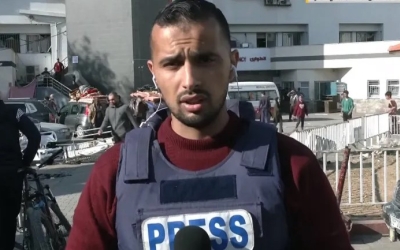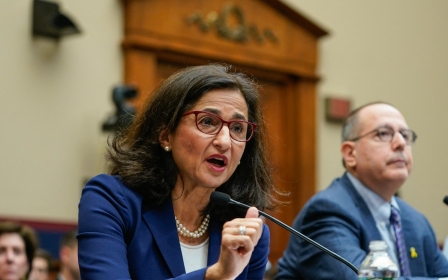Melbourne orchestra leaders voted out for removing pianist over Gaza tribute

Musicians at the Melbourne Symphony Orchestra (MSO) have passed a vote of no confidence in its board after it cancelled a show by a pianist who had dedicated a performance to Palestinian journalists killed by Israeli forces in Gaza.
In a letter to the management, the musicians said the scandal had brought the orchestra "into disrepute" and highlighted "years of unresolved concerns", Australia's Herald Sun reported on Friday.
“We believe it is the duty of senior management to lead and manage in accordance with the MSO’s values and behaviours, however, it has become apparent that these values no longer appear to be aligned with those of the orchestra and staff,” the musicians' letter stated.
On Sunday, British-Australian pianist Jayson Gillham premiered a five-minute piece called Witness.
"Over the last 10 months, Israel has killed more than 100 Palestinian journalists," Gillham told the audience, ahead of performing the piece.
New MEE newsletter: Jerusalem Dispatch
Sign up to get the latest insights and analysis on Israel-Palestine, alongside Turkey Unpacked and other MEE newsletters
“A number of these have been targeted assassinations of prominent journalists as they were travelling in marked press vehicles or wearing their press jackets. The killing of journalists is a war crime in international law, and it is done in an effort to prevent the documentation and broadcasting of war crimes to the world.
“In addition to the role of journalists who bear witness, the word 'witness' in Arabic is 'shaheed', which also means 'martyr'.”
Following the concert, MSO announced that it had cancelled Gillham's scheduled performance of Mozart and Brahms at the Melbourne Town Hall, which was scheduled to take place on Thursday, due to "a series of introductory remarks" he made.
The orchestra said that Witness was performed "on the basis that it was a short meditative piece" but that personal remarks were made "without seeking the MSO's approval or sanction".
MSO admits 'error'
The cancellation of his concert for dedicating a song to slain Palestinian journalists was strongly criticised, including by Australian artists and musicians.
Australia's Media, Entertainment and Arts Alliance (MEAA) said it was "disturbed" by the development.
"Musical and artistic expression have long been a vehicle for political commentary and a lens through which we examine the world," it said.
"MEAA members stand in solidarity with Jayson Gillham and with journalists working in Palestine."
The MSO backtracked on Thursday and admitted that it had made an "error" in cancelling Gillham's performance.
It said that it had sought "independent security advice" following Sunday's concert, and in light of the advice, "had no option but to cancel" Gillham's next show.
"While the Melbourne Symphony Orchestra maintains that a concert platform is not an appropriate stage for political comment, we acknowledge Jayson’s concerns for those in the Middle East and elsewhere," it said.
"We recognise the strength of feelings of all parties on this matter and particularly acknowledge the dedication and commitment demonstrated by all our musicians and staff this week."
It said that it had spoken to Gillham and his management and was seeking to reschedule the cancelled concert.
Despite the reversal, musicians at the MSO voted to remove the leaders of the orchestra.
“We no longer have faith in the abilities of our senior management to make decisions that are in the best interests of the company at large,” they said.
The MSO's official X account was made private this week following the incident.
According to the Committee to Protect Journalists, at least 113 journalists have been killed since the current war began on 7 October.
At least 108 of them are Palestinians, while two are Israeli and three Lebanese.
In addition, 32 more journalists have been wounded, two are reported missing and at least 52 have been arrested over the past 10 months of war.
Middle East Eye delivers independent and unrivalled coverage and analysis of the Middle East, North Africa and beyond. To learn more about republishing this content and the associated fees, please fill out this form. More about MEE can be found here.





